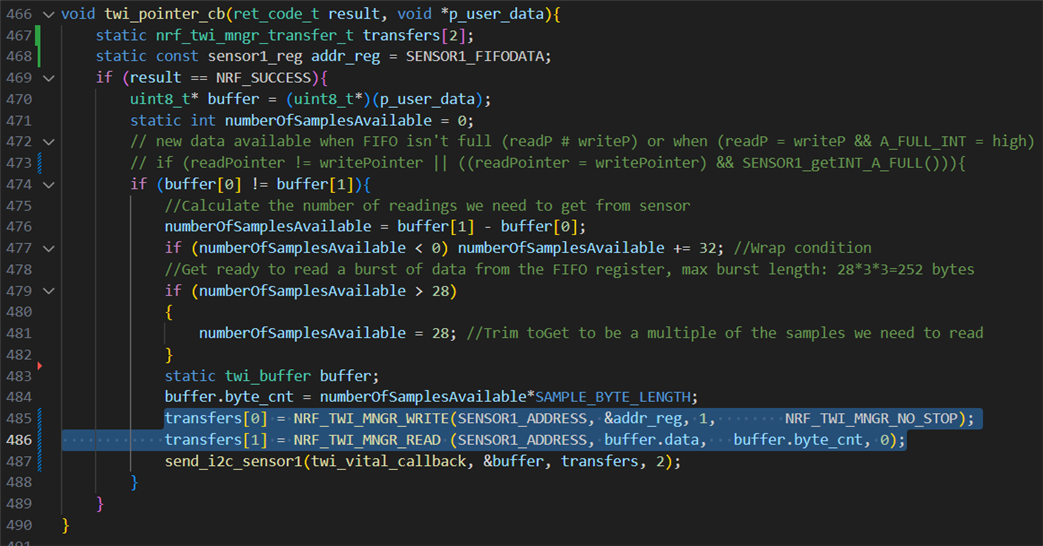Hi, we are using nRF52832 for our project. SDK version is nRF5_SDK_17.1.0_ddde560. SoftDevice is S132.
The project requires TWI to read data from a sensor and send that data via BLE. The sensor will output 9 bytes every 2.5ms, or 3600B/s data rate. Currently, BLE consumes 0.1mA and it matches the estimated number. When data transfer via BLE is going on, our board consumes 3.8mA. We are trying to lower this number by determining if any part of the system consumes more power than usual.
So we first remove the code that sends data via BLE, which means only connect via BLE, and read data via TWI, but do not send it to the peer. We get a consumption of around 3.2mA
Then we remove the code that reads data from sensor via TWI. This time consumption reduces to 1.5mA. The sensor is still in its working state, just the code to read data in the sensor buffer is removed.
That means reading sensor data via TWI consumes 3.2-1.5=1.7mA. This is so high, especially for a quite low data rate. TWI clock is 100KHz. We check the sensor buffer every 60ms to see if any data is available. The buffer check is simply just 2 registers (head & tail) being read from the sensor. From this, we know how many bytes we can read from the sensor, and we read a burst of that many bytes from the sensor.
Is this number normal for TWI usage? Is there any way we can optimize the power consumption when using TWI? Please let us know soon. We really appreciate your speedy help.
Best regards,
Xander




